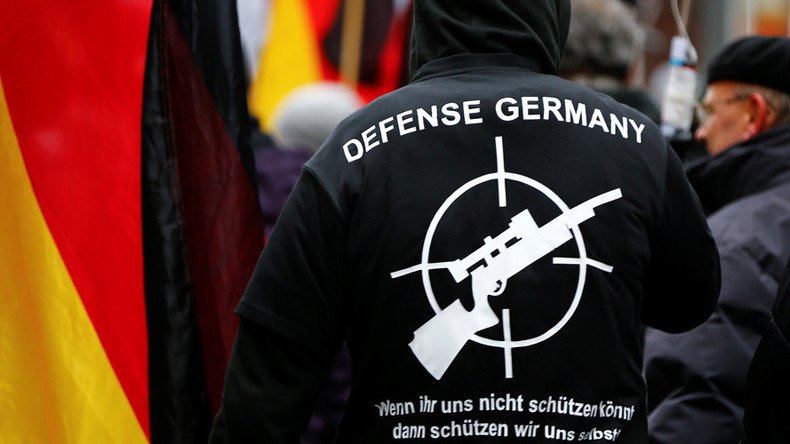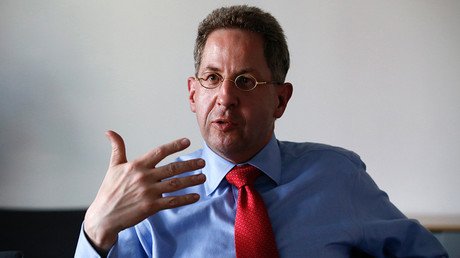Islamists, neo-Nazi terrorists ‘nationwide problems’ in Germany – intel official

Radical Islamist cells are spreading all across eastern German states while terrorism-related tip-offs emerge on daily, says the head of Thuringia’s domestic intelligence agency, adding that the right extremist underground is becoming “a nationwide problem.”
Islamist extremists were advancing “with impunity” in rural areas of eastern Germany even before the ongoing influx of refugees into the country, Stephan Kramer, head of Thuringia’s regional Office for the Protection of the Constitution (BfV) told Mitteldeutsche Zeitung, as cited by Die Welt.
Nowadays, the security environment in the east has deteriorated even more, Kramer maintains.
“We are getting tip-offs leading to terrorist suspects every day,” he said, adding however that it is equally crucial to distinguish between actual suspects and false alarms.
He then mentioned Jaber al-Bakr, a Syrian refugee who was detained in October last year on suspicion of plotting to bomb an airport in Berlin. When police raided his flat in the eastern town of Chemnitz, some 1.5kg of home-made explosives, like those used in the fatal jihadist attacks in Paris in November 2015 and in Brussels last March, were found.
“We have similar cases here in Thuringia, and I know from other colleagues in the eastern German states that it is the same there,” Kramer said without elaborating. The intelligence officer did not name any specific Islamist groups, only stressing that “this is a nationwide problem.”
In a separate interview to Frankfurter Runschau, Kramer said the far-right extremists pose an equal threat to public safety.
“It is increasingly acceptable to achieve political goals through violence,” Kramer stressed.
“Unlike the Islamist [threat], we are dealing with an existential problem,” he asserted, adding that the rise of the right-wing terrorism could not be ruled out either. “Our working hypothesis is that there are more far-right terrorist cells and networks than we know, and it is no secret that groups like the ‘Oldschool Society’, ‘Blood and Honor’, ‘Combat 18’ and the Turonen are active now.”
Several days before Kramer’s interview, Gordian Meyer-Plath, head of Saxony’s domestic intelligence, alerted that Muslim Brotherhood – a transnational Sunni fundamentalist organization considered a terrorist group in Bahrain, Russia, Syria, Saudi Arabia and the UAE – is actively investing into real estate and are trying to “monopolize” mosques in the region to increase its influence.
Members of the Muslim Brotherhood “have long been active in Saxony, although they were stealthy,” Meyer-Plath told Germany’s MDR broadcaster.
He warned, however, that “only now, when a [large] number of Muslims have come to Germany, do they see a chance to expand their network beyond some central structures and become interesting for the new Muslims in Saxony.”
Though the threat posed by the Muslim Brotherhood in Germany is “beyond jihad,” the security services would continue to monitor the Brotherhood’s activities in Saxony. BfV figures show that about 1,000 members of the Muslim Brotherhood are active in Germany, as reported by MDR.














